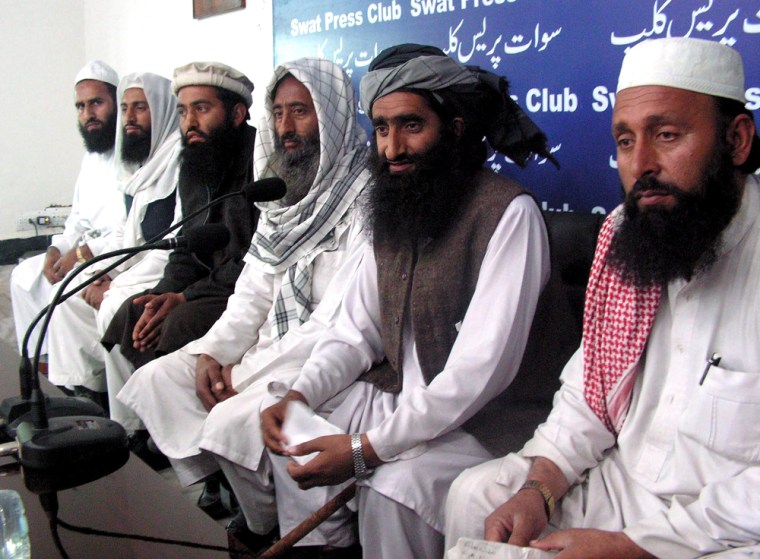Judges trained in Islamic law began reviewing cases Tuesday in a northwest Pakistani region where the government has alarmed the West by agreeing to impose religious rule to make peace with the Taliban.
A pair of such judges, or qazis, reviewed 30 minor cases in the Swat Valley's main city of Mingora but referred all the petitioners to the police for mediation or investigation. A total of seven Islamic courts began functioning in the valley Tuesday, top government official Syed Mohammad Javed said.
Pakistan agreed to the Islamic courts after Taliban militants appeared to have gained the upper hand in the valley, a former tourist haven where the military has failed to dislodge the extremists despite a long-running offensive.
Cease-fire holding
Months of fighting killed hundreds of people and forced up to one-third of Swat's 1.5 million residents to flee.
A cease-fire struck in mid-February appears to be holding. The provincial government also has agreed to other measures, including closing shops at prayer time and cracking down on drug dealers.
Western officials worry the peace effort will simply turn Swat into a safe haven for Islamist militants not far from Afghanistan.
But Pakistani officials say they will not impose draconian rules adhered to by many Taliban, such as banning girls' education. They also note that religious courts have long been a demand of Swat residents fed up with the inefficient secular justice system.
Mian Kareem Dad, 55, filed a petition with one of the judges in Mingora in hopes of resolving a long-standing land dispute within his family. He said the matter had languished in the regular courts, but that the new judge had already assigned it to a police officer.
The officer was told to come to the court within two days with the other party, Dad said.
"I have had this issue for many years," he said. "I hope it will be solved without any fuss and without too much cost. I am hopeful for justice."
Legal standing dubious
The religious courts' legal standing remained somewhat dubious because President Asif Ali Zardari has not signed off on the agreement to impose Islamic law in Swat.
Pakistan's judicial system took the spotlight this week when the government conceded to activist lawyers' demands that it reinstate the former Supreme Court chief justice and a handful of other judges sacked in 2007.
Zardari signed a notice ordering the reinstatement of 11 judges Tuesday, according to a news release.
The release indicates that nearly all the reinstatements are effective immediately but notes that the former chief justice, Iftikhar Mohammed Chaudhry, won't be able to resume his duties until after the current chief justice retires Saturday.
Zardari had incurred the anger of lawyers by reneging on pledges to restore the judges. He apparently feared Chaudhry might examine a deal that gave Zardari and his wife, slain politician Benazir Bhutto, immunity from prosecution over alleged corruption.
